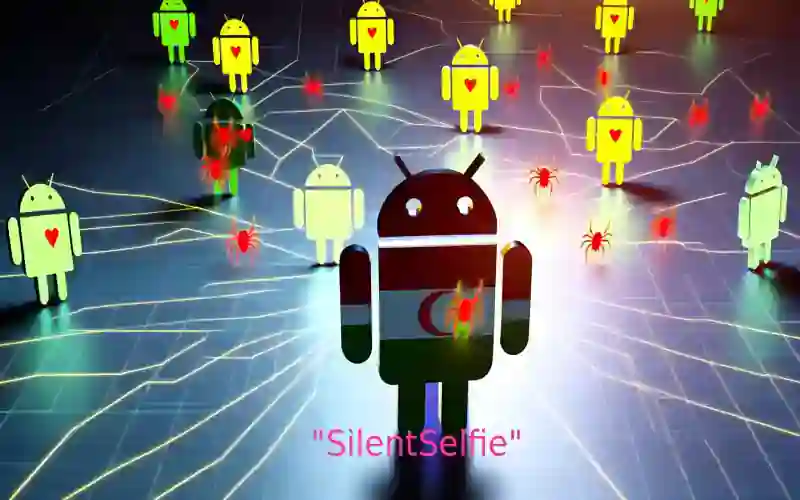
“SilentSelfie: Exploiting Web Vulnerabilities to Target Kurdish Communities with Covert Cyber Espionage”
Exploring the SilentSelfie Cyber Espionage Campaign: A Deep Dive into the Exploitation of Kurdish Websites
The SilentSelfie Cyber Espionage Campaign: A Deep Dive into the Exploitation of Kurdish Websites
In the ever-evolving landscape of cyber threats, a new and concerning trend has emerged where threat actors exploit vulnerabilities in websites to orchestrate sophisticated cyberattacks. These attacks leverage both technological weaknesses and user behavior, employing tactics such as phishing and drive-by downloads to compromise user information and system integrity. Recently, researchers at Sekoia uncovered a particularly alarming campaign dubbed “SilentSelfie,” which exploited 25 websites to deploy a malicious Android application targeting Kurdish communities.
The SilentSelfie campaign, active since late 2022, utilized a combination of watering hole attacks and a covert Android app disguised as a news application. This app was not just any malicious software; it was designed to collect system information, contacts, and files by beaconing user locations and executing commands through a hidden “LocationHelper” service. The attackers employed sophisticated obfuscation techniques using tools like Obfuscator.io and ProGuard to hide their malicious code, alongside WebRTC for IP address discovery and cookies for tracking users.
The infrastructure supporting this campaign was meticulously set up with compromised web servers and dedicated attacker-controlled servers facilitating the communication via PHP scripts. This level of complexity in the attack infrastructure indicates a high degree of planning and resource allocation by the threat actors. Interestingly, the tactics, techniques, and procedures (TTPs) observed in this campaign did not match those of known threat groups like StrongPity, suggesting the possible emergence of a new Advanced Persistent Threat (APT) group with specific interests in Kurdish regions.
The targeted websites were primarily associated with Rojava (North-East Syria), YPG forces, and various far-left Turkish-Kurdish political entities. These sites were compromised to inject malicious JavaScript code that tricked visitors into downloading compromised Android apps under the guise of fake update prompts. Once installed, these apps requested permissions for camera and GPS access, which were then exploited to exfiltrate sensitive data such as precise location coordinates and facial images.
Despite the intrusive nature of these attacks, which included multiple on-screen notifications, the campaign remained undetected for over 18 months. This prolonged period of undetected activity underscores the stealthy and persistent nature of the threat actors involved. While it is challenging to definitively attribute the attacks to specific entities, potential culprits include Turkish intelligence services, Syrian government agencies, and even the Kurdistan Regional Government of Iraq, with Iran and Russia considered as less likely candidates.
The simplicity of some aspects of the campaign, such as the use of basic obfuscation methods and absence of complex malware, suggests that this might be the work of an emerging threat actor or one with limited capabilities. Notable compromised sites included ‘RojNews,’ ‘YPG Rojava,’ and websites affiliated with ‘DHKP-C’ and ‘PAJK.’ The broad scope and duration of this campaign highlight the ongoing cyber threats faced by Kurdish organizations and underscore the urgent need for enhanced security measures in the region.
As we continue to witness these sophisticated cyber espionage efforts unfold, it becomes increasingly clear that no entity is immune to cyber threats. The exploitation of websites to deploy malware represents a significant shift in how cyberattacks are conducted, emphasizing the need for robust cybersecurity defenses and increased vigilance among users and organizations alike.














